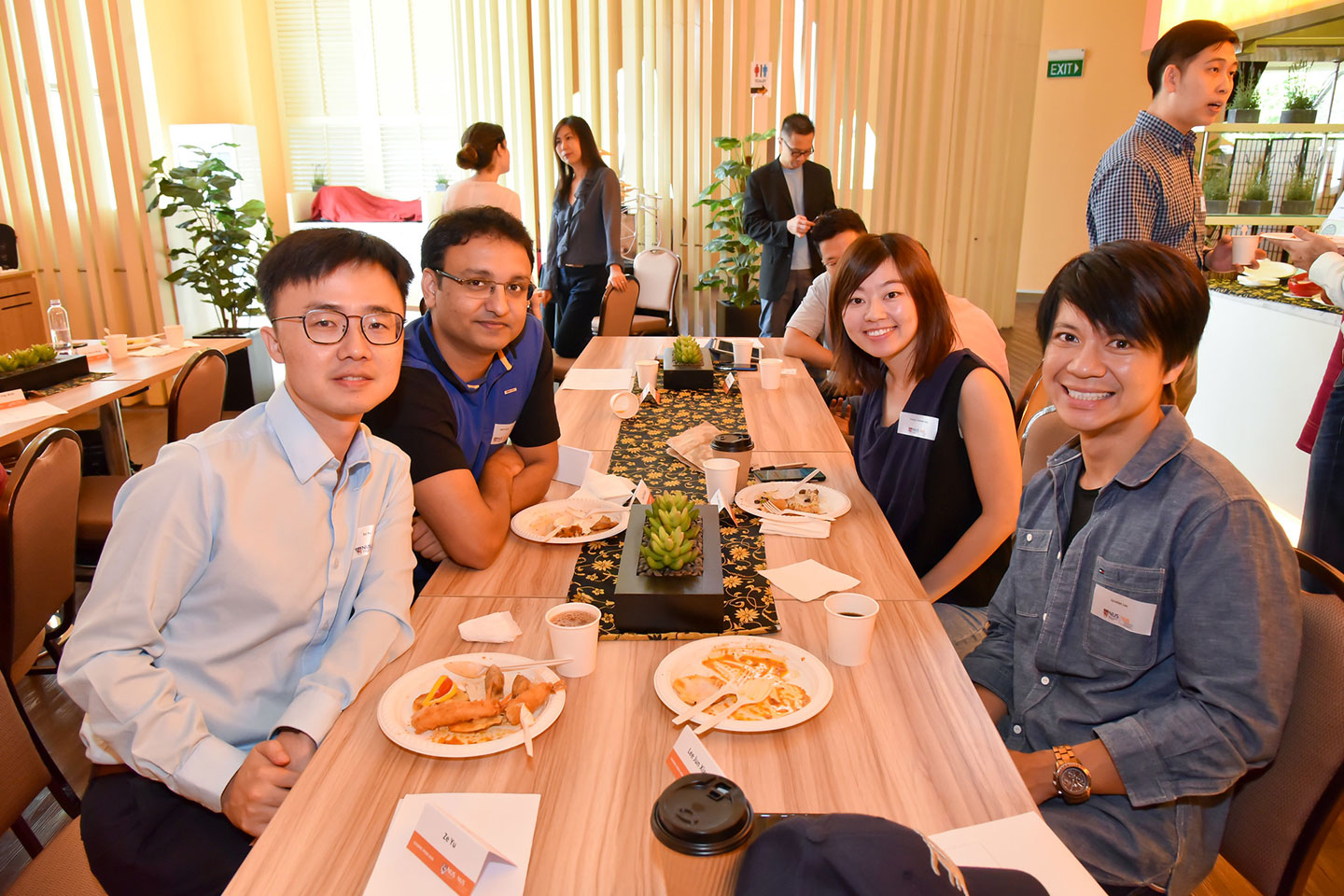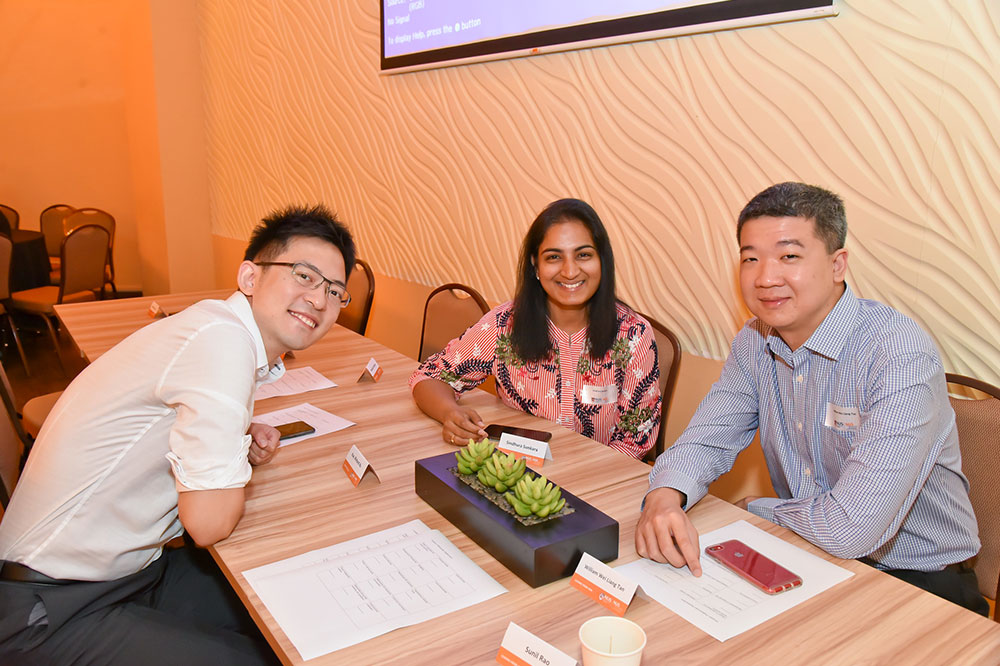NUS MBA Mentorship Programme 2019
The NUS MBA Mentorship Programme is a professional development programme that brings together current NUS MBA students and alumni in an exchange of knowledge, information, insights and experience.
Launched in 2007, the programme is designed to meet the needs of our MBA students and alumni depending on their own schedule and timetable. The first introduction usually takes place during the in February. Mentors and mentees are encouraged to meet at least two to three times during the mentoring cycle and keeping in contact frequently to share updates or challenges.
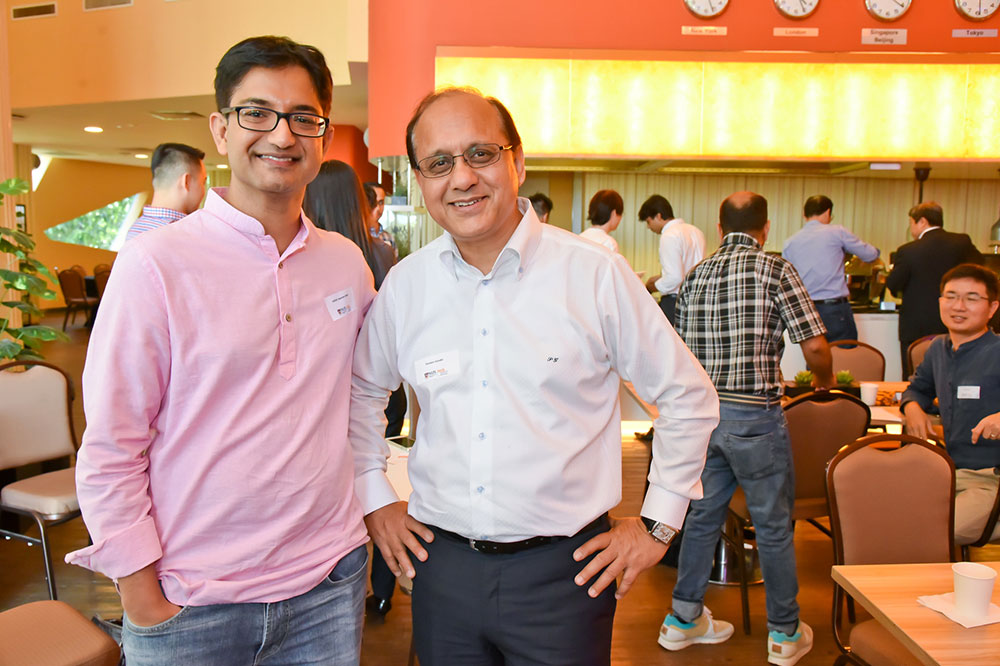
At the recent kick-off lunch, former students of the programme Daniel Dinh Khanh Su (Class of 2017) and Tess Wartanian (Class of 2018) shared their positive reviews and gains from this programme.
Tess shared, “It is a rare opportunity to have people so invested in your success to help you along the way. It is a privilege for us MBA students to have these skilled mentors volunteer to advise and guide us.”
Her advice to students in the programme: Always be open with your mentor – when you are open-minded, you will reach new levels of growth and personal development.
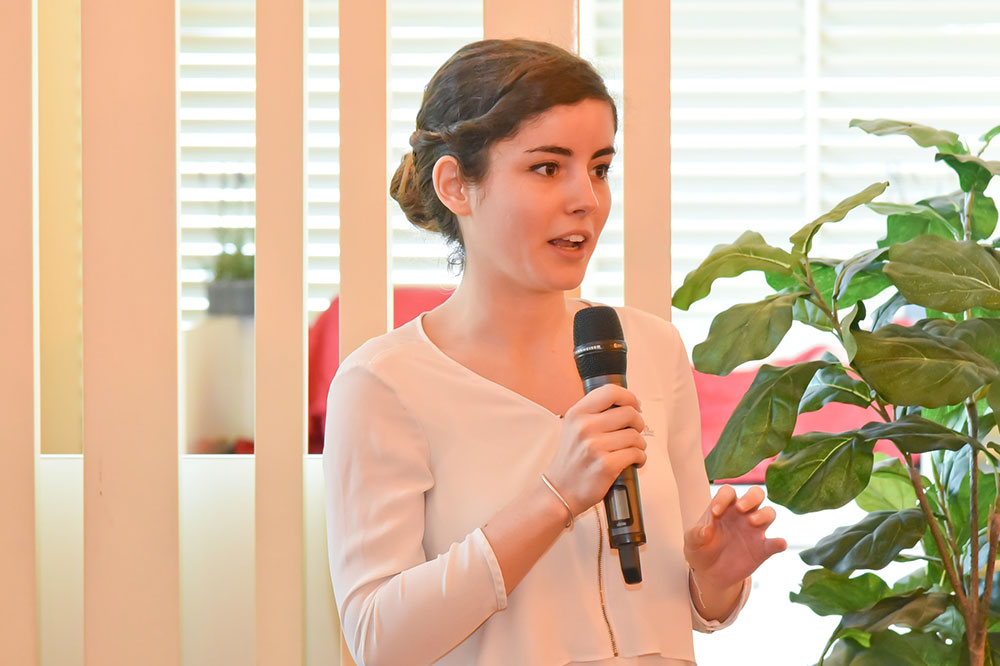
NUS MBA alumna Tess Wartanian (Class of 2018) sharing her mentee experience at the luncheon
UCLA-NUS EMBA alum, Class of 2009, Mr Anson Dichaves (General Manager & Director of Brand & Channel Marketing, DKSH) echoes the same sentiments, “Mentees need to be open in their questions as you will never know what answers or solutions you would receive. The key is to be open to the experience and have open conversations. Also, always be proactive in setting meetings with your mentors as they have busy schedules too.”
Into his fourth year of mentoring where he takes two students each year, Mr Anson says he has learned a lot during his interactions with different individuals, as well.
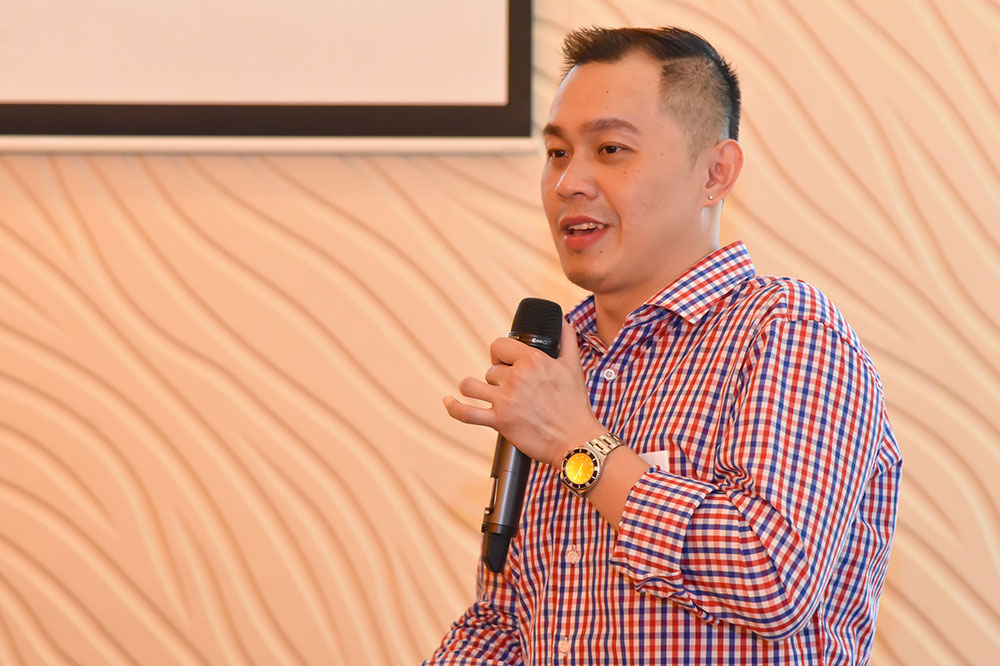
Mr Anson Dichaves (General Manager & Director of Brand & Channel Marketing, DKSH) explaining his mentorship structure
He added, “I found that everyone has different needs and you have to coach them separately. They don’t always need your tactical skills, and you never know where or how you can value add to their life. I believe in having a formal structure – a beginning and an end. After you close the ‘official’ mentorship chapter, we can move on to friendship. That usually ends with a celebration of a new job or a position the student was looking to move into.”
For those interested in being a mentor, Mr Anson said, “Understand what the student is looking for – be it a career or life decision, and using an appropriate communication style, you will be able to find out how you can help each other. One tip is to get students to think strategically about their internships. When I started mentoring in 2016, Daniel was myfirst mentee. And because of his work at Google, I had the chance to tour the new Google office. So, don’t look this as a ‘job’, but for someone to learn and share yours and their success and challenges.”
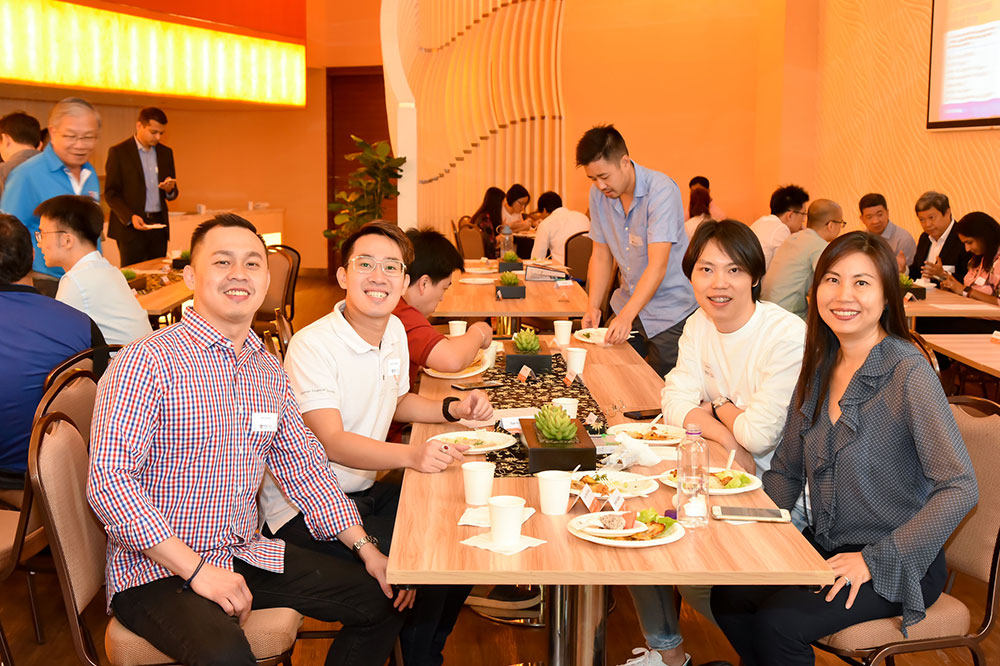
Mr Anson Dichaves (left) and NUS MBA alumnus Daniel Su (second from left) catching up at the luncheon
NUS EMBA alum, Class of 2000, Mr Tan Yong Wah (Chief Information Officer, The Hong Kong Monetary Authority) also shared his experiences as a mentor at the luncheon.
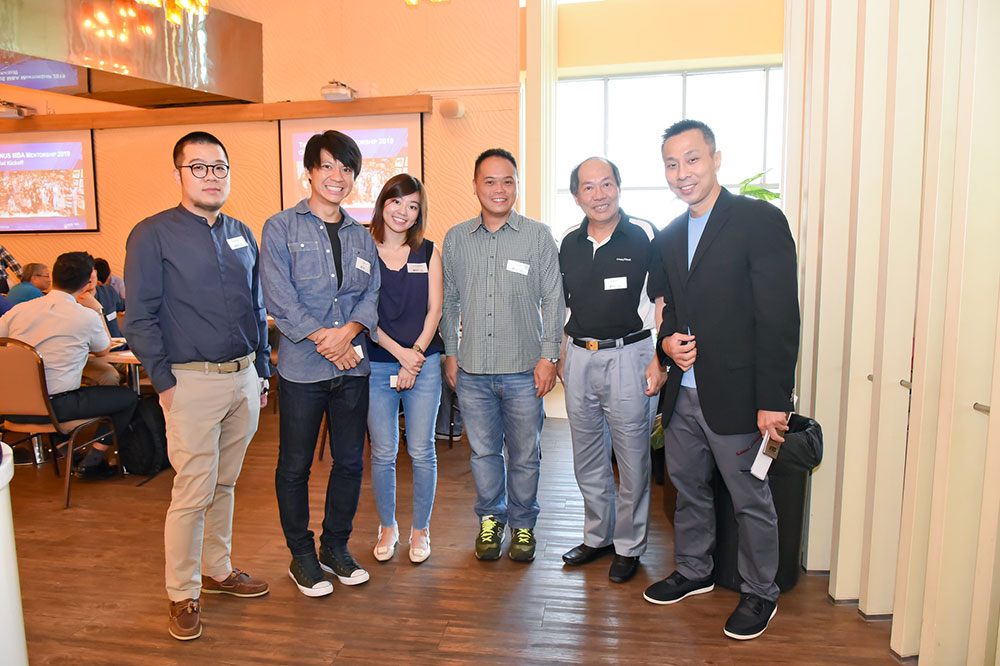
Mr Tan Yong Wah (second from right) and Head of NUS Business School’s BIZAlum, George Heng (right)
Find out how you can be our alumni mentor here. Registrations are welcomed all year round.
Tell us what you think of this article



